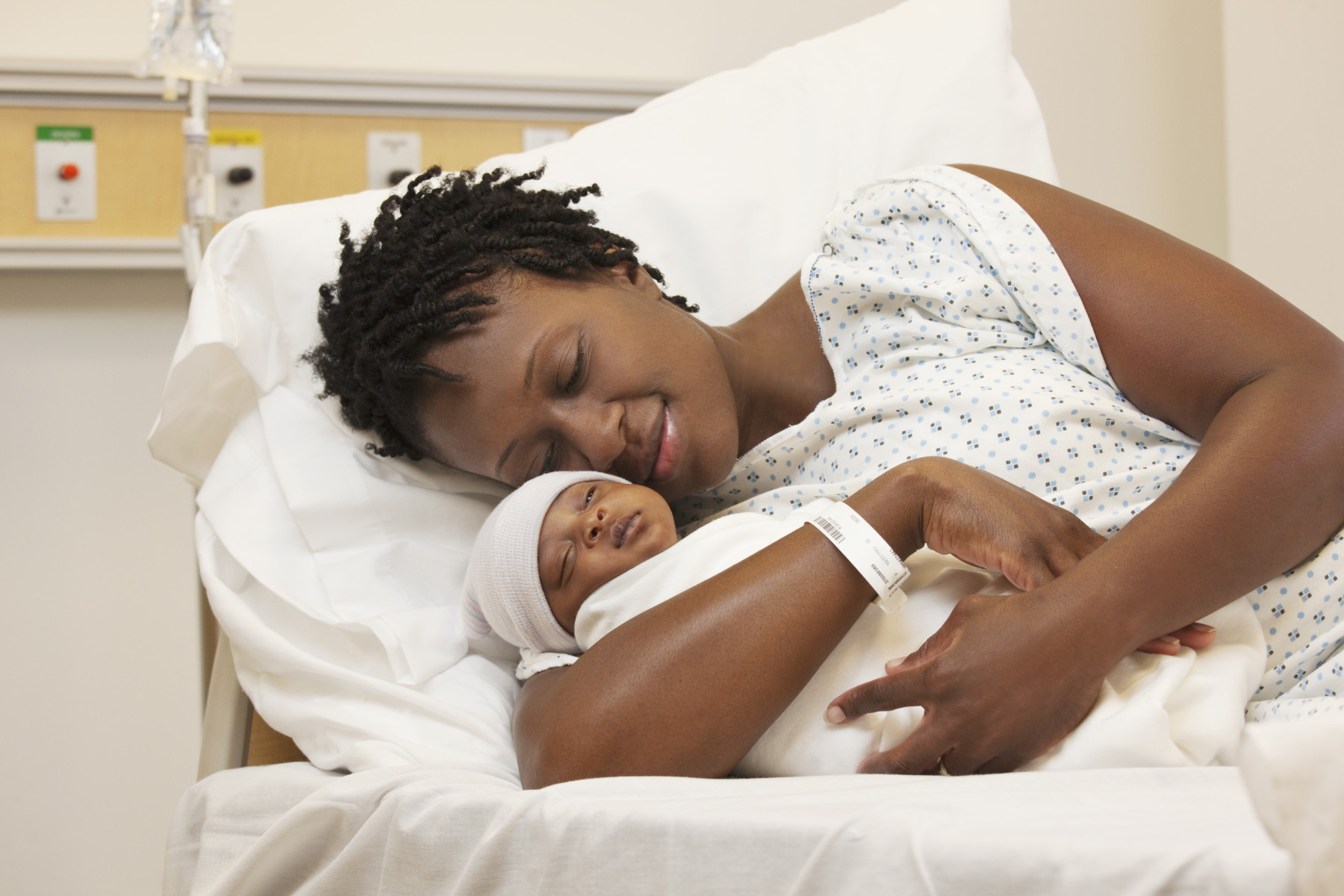
Cedars-Sinai and BlackDoctor.org to Lead Virtual Community Conversation Spotlighting Black Maternal Mental Health
Black women in the U.S. are three times more likely than white women to die, or become seriously ill, from pregnancy-related complications, according to the Centers for Disease Control and Prevention. Those disparities remain regardless of income or level of education. Studies point to a kaleidoscope of factors contributing to the dangerous inequity, including racism, barriers to appropriate care, social and economic factors, and chronic stress.
Addressing the complexity of causes behind poor health outcomes for Black mothers requires commitment, investment and innovation to produce meaningful, measurable change.
“Ensuring equitable outcomes for our patients is a priority at the highest level of Cedars-Sinai. Black Maternal Health Week raises awareness about birthing inequities that exist, and the multidisciplinary work required to close the gap,” said Christina Harris, MD, Cedars-Sinai vice president and chief health equity officer.

“But the work of preventing harm and saving Black lives is a continuous process that is not confined to one week. It is 24 hours a day, seven days a week, every week and every year. That is the level of commitment that is required,” Harris said.
Cedars-Sinai initiatives to improve Black maternal health include lowering the rates of a common cause of death during childbirth, funding community partners, providing mandatory anti-discrimination education and bridging the gap in maternal mental health care.
Community Conversations
Throughout the year, Cedars-Sinai partners with BlackDoctor.org for a series of Community Conversations that address a wide range of health and public health concerns. This month’s conversation will focus on Black maternal mental health.
According to the American Counseling Association, Black women face an increased risk of perinatal mood and anxiety disorders, including depression and post-traumatic stress disorder. On April 10, “Shining a Light on Black Maternal Mental Health” featured a panel of healthcare experts discussing the importance of early diagnosis and access to support and effective treatment. The conversation included an inspirational Black mom who shared her journey of recovery from serious postpartum depression.
AI Plus Aspirin Eliminates Racial Disparities in Preeclampsia Treatment

Aspirin can reduce the risk of developing preeclampsia, a dangerous hypertensive complication of pregnancy that can lead to serious complications and even death. But Black pregnant women are particularly vulnerable to being overlooked for aspirin treatment.
A study led by Wong found that using artificial intelligence to automate decision-making about prescribing low aspirin—and to identify patients at risk for preeclampsia—resulted in an increase in appropriate aspirin treatment and eliminated the racial disparity in care.
Perinatal Antidiscrimination Initiative

“Always Listening and Learning with You”—ALLY—is a phrase developed by the Cedars-Sinai perinatal unit to characterize an effective approach to patient advocacy and health equity.
The principle of “allyship” is the foundation of annual department compliance training on unconscious bias. The course demonstrates the value of inclusive terminology, offers opportunities to explore how to advocate for patients and colleagues and emphasizes the critical role staff members play in improving the experiences of patients.
Black Maternal Mental Health

“Black women are twice as likely to experience perinatal mood and anxiety disorders, including postpartum depression, than their white counterparts. They are also less likely to receive treatment,” said clinical psychologist Eynav Accortt, PhD, director of the Reproductive Psychology Program.
Cedars-Sinai investigators are recruiting participants for an NIH-funded study aimed at addressing those disparities. The Resources, Inspiration, Support, Empowerment (R.I.S.E.) for Black Maternal Mental Health study tests a mobile health web application designed to help manage stress in pregnancy.
Black women living anywhere in the U.S. who are 12-32 weeks pregnant and at least 18 years old can participate in the study. Click here for more information.
Community Partners
Cedars-Sinai also partners with trusted community organizations committed to improving Black maternal and infant health.
Since 2022, Cedars-Sinai has committed over $3.5 million to 14 organizations that focus on reaching perinatal and postnatal Black women in Los Angeles County, across the continuum of care. Grantees include highly respected partners such as the California Black Women’s Health Project, which provides health education and other resources meant to build empowering relationships within the community of Black pregnant and parenting women they serve.
“Striving for health equity among all populations has long been a goal of Cedars-Sinai. These organizations are key partners in that mission. The grants—and opportunities to combine resources for the good of public health—are an important way we can contribute to improving Black maternal health and well-being,” Harris said.
Read more on the Cedars-Sinai Blog: Equitable, Personalized Care for Women and Children of Color






